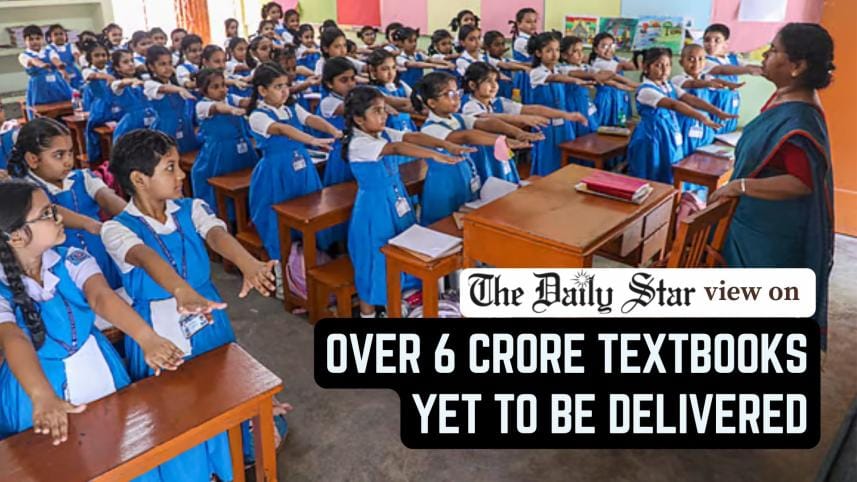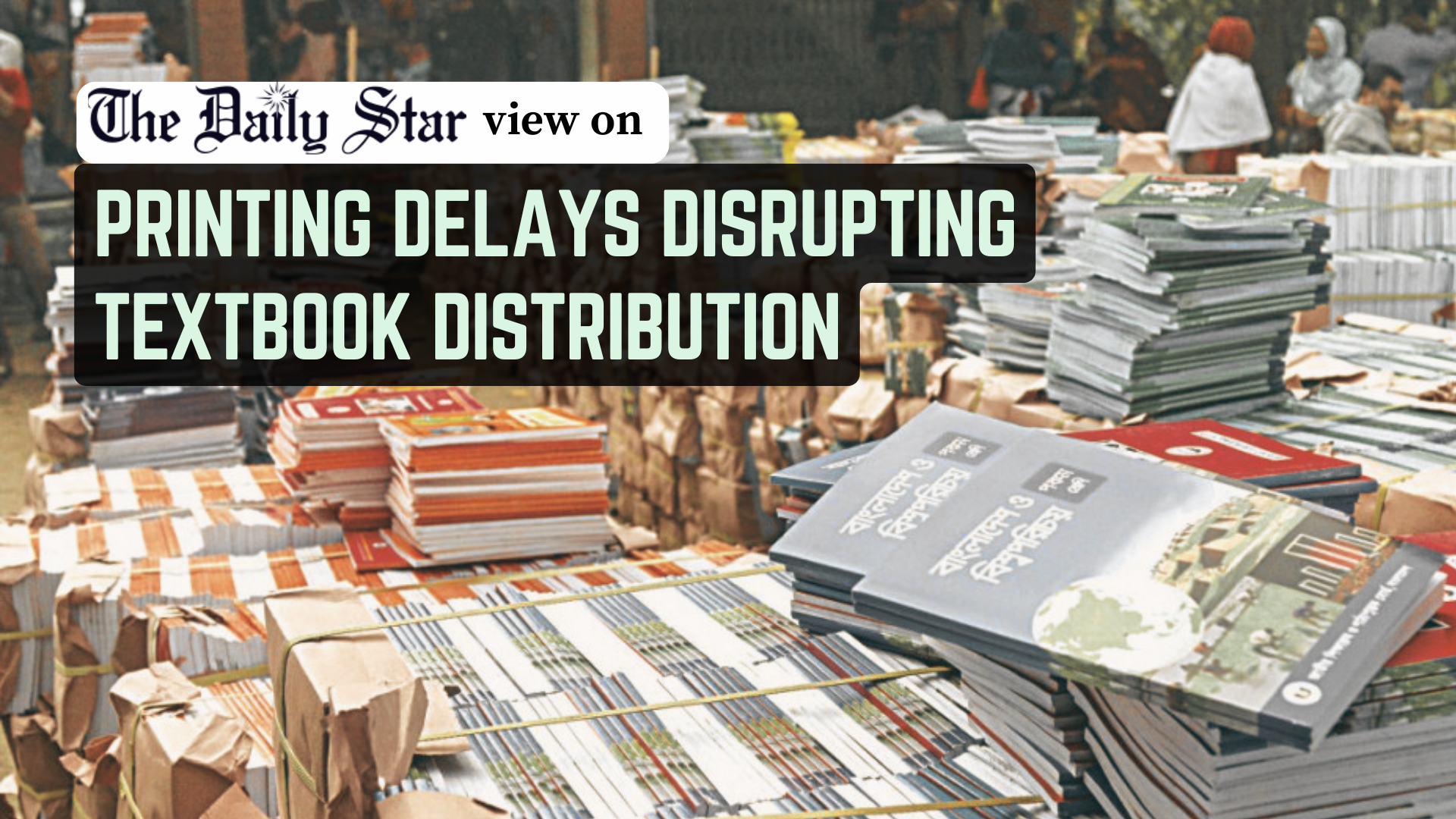Expedite textbook delivery

It is deeply disappointing that three months into the new academic year, many school and madrasa students under the national curricula are still without their full set of textbooks, which is severely hampering their studies. According to a Prothom Alo report, the National Curriculum and Textbook Board (NCTB) was supposed to deliver a total of 39.5 crore books to four crore students at the start of the year, but as of the first week of March, over 6.38 crore books remain undelivered. Of them, 6.22 crore are meant for secondary-level students, including those in Ebtedayee madrasas.
As many of us would already know, several factors have impeded the delivery of textbooks this year, including book revisions, the reversion to an older curriculum, the decision to assign printing exclusively to local printers, and delays in tendering, approvals, contracts, etc. However, industry sources told Prothom Alo that NCTB's poor planning was a key factor in this setback. In fact, insiders had predicted last year that textbook distribution would not be complete before March, despite NCTB's claims that it would be done by mid-January. Printers had warned of a paper shortage, as much of it is apparently imported from China. Yet, three months later, the same issue persists, with NCTB now blaming printers for failing to secure alternative suppliers and complete the job on time. Why the textbook board did not address this problem earlier—before awarding printing contracts—is a mystery to us.
By now, NCTB's inefficiencies are nothing new. We witnessed a number of hiccups throughout the textbook revision and printing process, with the government body omitting as well as printing wrong information in revised books. Unfortunately, it is students who bear the brunt of these errors and failures, as delays in receiving books directly affect their learning and exam preparation. Under the circumstances, penalising printers, who failed to meet deadlines, is not enough; NCTB officials must also be held accountable. They must explain why a contingency plan was not in place to prevent such delays.
There is also scepticism over NCTB's latest deadline of March 10 for completing textbook distribution, as schools will remain closed throughout Ramadan. We hope this does not become yet another example of NCTB's poor planning. The authorities must ensure that such disruptions do not recur.



 For all latest news, follow The Daily Star's Google News channel.
For all latest news, follow The Daily Star's Google News channel. 

Comments